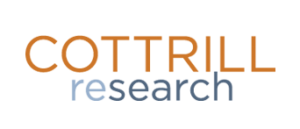In 2014, I addressed the issue of how to tackle a supply market intelligence (SMI) initiative when you (and other procurement professionals) are stressed for time and dealing with a limited budget. It is still true that SMI can be difficult for world-class procurement departments and even more challenging for professionals in smaller procurement departments with limited resources. However, SMI is an initiative that can be achieved with success regardless of spend category, budget size, or restraints on time. In 2014, I recommended addressing the challenge of limited time and restrained budgets by:
- learning and taking advantage of open access resources and the experts, institutions, and organizations that offer them, and
- mastering the skills of basic research.
In the last three years there has been an increasing emergence of new procurement and supply chain-focused research and market intelligence offerings due to widespread acknowledgement that supply market intelligence has become a key strategic component within the procurement function. Concerning research skills, the focus has shifted from how to find the data and information needed to how effectively the searcher can identify and verify that the data and information to be used is clean and accurate. Using bad data is far worse and more damaging than not having any data at all.
Priorities Change As Search Moves Forward
Investing in time to learn search techniques is still important when researching, but as Google, Bing and others continue to move search forward, avoiding the use of fake or inaccurate information for decision-making is just as important as producing relevant results. In addition, learning to search a commercial database is not as difficult as it used to be. Most interfaces of new offerings (including procurement/sourcing-focused ones) are simple, elegantly designed, and easy to use. The key is to know which resources are the most beneficial for your department’s SMI needs.
Thinking Critically About Data
The skill now needed is the ability to think critically to:
- value, understand, and evaluate resources – and the root of original data sources for those resources – before using, and
- link data/information culled from as many sources as possible for intelligence creation and ultimately decision-making.
Steps for Going Forward
- Regardless of your budget, staff size, and/or time limitations, strategically prioritize a few spend categories to start with, even if it is only with one.
- Do an analysis on which resources are available for the particular spend categories or markets chosen. Allow for the initial investment of time needed to focus on the actual research resources available and evaluate them in terms of how they meet your department’s specific need(s). Critical thinking skills are needed to clearly understand, evaluate, and identify resources – and original sources of data for those resources – and for mentally linking information to form intelligence creation when performing research.
- If you are a small department and have a limited budget, learn and take advantage of open access (free) resources. If your department needs to rely solely on the open web for searching, learn basic search techniques to reduce the amount of time spent on searching.
Resources To Use To Get Started:
- ProcureSearch – a resources hub with listings that identify and update selected research resources (open access and for fee) for key direct and indirect spend categories, along with supplier and geopolitical risk discovery, due diligence, and monitoring sources
- Procurement blogs such as My Purchasing Center and Spend Matters (also an analyst firm and prolific producer of info)
- Procurement media outlets such as Procurement Insights, Buyers Meeting Point, and Art of Procurement
- Procurement communities such as Procurement Leaders and Procurious
- Procurement service provider directories such as ISM Purchasing and Sourcing Guide and Spend Matters Almanac
- Professional Associations, Organizations, and Councils – These are important for many reasons. Not only can you take advantage of contact information to experts, but most have discussion forums. National and world organizations, such as The World Bank, and councils, especially commodity councils, are prolific publishers of free and for fee information. Their websites often times provide resource centers where you can access background information, buyer’s guides, daily news, market data, links to other related sources, and industry trend and forecast reports.
- A Fake News Checklist for Procurement
